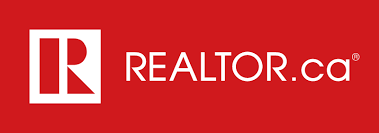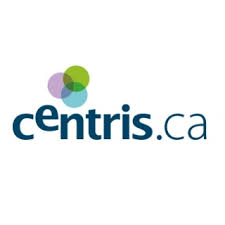5 TIPS TO INVEST IN REAL ESTATE IN CANADA MORE EASILY!
- Marion Pudeleau

- Feb 7, 2025
- 5 min read
Your child is coming to study in Canada and you want to invest in property for them rather than renting an apartment? Or are you planning to immigrate to Canada soon and want to purchase your home before your arrival?
FEBRUARY 2023 UPDATE:
Unfortunately, the new Foreign Buyer Ban law on residential property purchases by non-Canadians has come into effect in Canada as of January 1, 2023, prohibiting real estate investment by non-Canadians until January 1, 2027 I explain this law here!

You're absolutely right! It is indeed very advantageous to invest in real estate in Canada, as explained in The 7 Reasons to Invest in Real Estate in Canada, since the country has a highly attractive market that French people would be wrong to pass up! However, investing in an apartment or a house abroad, far from home, and especially without knowing the local market, can be quite complicated.
As we saw in The 4 Traps to Avoid When Searching for Housing in Canada, finding an apartment or house is not that easy and can require a lot of time and energy, especially when it comes to a purchase! And you likely won’t have the time to spare upon your arrival, on top of all the administrative steps, settling in, studies or work, and getting acclimated...
That’s why I’m sharing a few tips here. As someone who invests in real estate both in France and in Canada, I’ve been able to compare the two systems
1- GET APPROVED BY A BANKING INSTITUTION
The pre-approval or prequalification from a bank is the first crucial step when you want to buy a property in Canada, as it conditions the rest of your search. This process, carried out in collaboration with a mortgage broker, will allow you to secure a commitment from a financial institution to finance you once you’ve found the property of your dreams. The prequalification document will specify the maximum mortgage amount you can qualify for, based on your profile, and it will also make you appear more serious to the seller.
You may be thinking, "This is all great, but how do I know which mortgage broker to contact?"
And you’re right to ask! To stack the odds in your favor, it’s important to work with a mortgage broker who has experience with cases like yours — namely, non-resident foreign buyers.
Indeed, the documents requested by Canadian banks are not always easily accessible in France or other countries, since the banking systems are different. Therefore, it’s essential to understand what Canadian institutions need and what the equivalent documents are in your home country, so you can provide the most complete file possible to the banks.
Once again, it’s all about stacking the odds in your favor to get the best financing plan possible!
With this goal in mind, surrounding yourself with qualified contacts who can guide you through the process in Canada can be extremely beneficial.
2- KNOW WHERE TO LOOK FOR PROPERTIES
Once you have your pre-qualification in hand, it’s time to start looking for housing based on the criteria you’ve set and the amount of the loan you can secure from the bank.
The system is very different from that in France because in Canada, housing listings are centralized and accessible to everyone, including all real estate brokers. Listings are grouped on online sites such as Centris, Kijiji, and Facebook Marketplace.
In most cases, listings are posted by real estate brokers who represent the sellers. However, some sellers prefer to handle the process themselves and list their properties on other sites such as Duproprio.
Although most available properties are listed online, it's important to know that real estate brokers also have access to what are called "off-market" properties: thanks to their network, they often know about properties that haven’t been posted online yet. This can be particularly advantageous to avoid competing with other buyers and to avoid price bidding wars.
It’s therefore very important to have good local contacts and know who to reach out to, in order to facilitate your search, save time, and increase your chances of acquiring a property.
3- UNDERSTAND THE LISTINGS IN QUEBEC FRENCH OR ENGLISH
Now you know what type of property you’re looking for, the maximum amount you can finance, and where to search... but you’re feeling lost reading listings that mention 3 1/2, 4 1/2, semi-basement, condo, plex... You’re wondering what neighborhoods like Ville Marie, Le Plateau, NDG, or Côte-des-Neiges look like... You’re trying to figure out what the "Bienvenue" tax is...
Yes, you’re now diving into the Quebec real estate vocabulary!
This can easily cause you to waste even more time and energy translating each term and researching neighborhoods on Google.
Again, reaching out to a local who will take the time to explain each term, and can provide insights into different neighborhoods and types of construction, could be very helpful to conduct your research more effectively.
4- BE AWARE OF THE SPEED OF THE PURCHASE PROCESS
Now that you understand how to interpret the property listings, you’re ready to start visiting properties, moving forward with the buying process... and becoming a homeowner in just a few weeks!
Yes, in Canada, the timeframes for various steps are much shorter than in other countries, so it’s important to be prepared: on average, a purchase is completed in 30 days! The market is competitive, so it’s crucial to stay responsive as timelines are tight for certain steps.
Understanding the rules of the acquisition process, the terms of purchase offers, and local market trends will be necessary to know when and how to react and, most importantly, not to waste any time.
5- SURROUND YOURSELF WITH A TEAM OF LOCAL EXPERTS
Once you start visiting properties, the rest of the process will quickly follow with an inspection within 10 days, confirmation of financing within 15 days, and appointments with the bank and notary in the following weeks.
The race against the clock is on!
To ensure that each step is completed within the given timelines, it’s essential to work with a team of professionals who know each other, trust each other, and are accustomed to working together. This will make communication smoother and facilitate the process as a whole.

You've understood it: investing in Canada can be very profitable, but it's better to be well-prepared when you start your process to give yourself the best chances.
To do so, surrounding yourself with the right people and being well-informed will save you time and money, because a small mistake could end up costing you a lot...
Want to jump into the adventure but don’t know where to start? Don’t have any local contacts and don’t know anything about the real estate market in Montreal or Toronto?
Don’t panic, all you need to do is find... a Housing Guide!
To start preparing, you can already learn more about the options offered to newcomers by the main banking institutions in Canada by checking the links below:
Caisse Desjardins:
BMO:
Banque Scotia:
Banque TD:
RBC:
Banque Nationale:
CIBC:
Sources:
















Comments